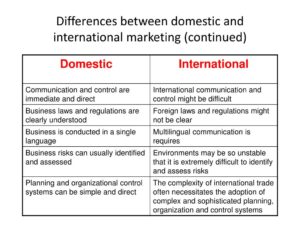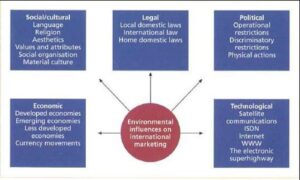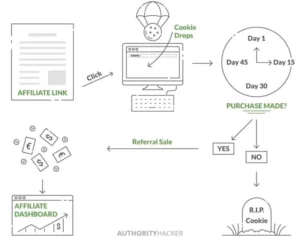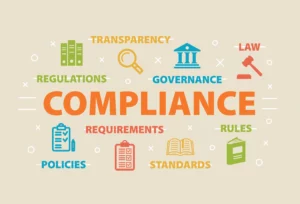Affiliate marketing is all about collaboration between brands and marketers to sell products. An affiliate promotes products and earns commissions on the sales or leads generated through their efforts. It’s like offering someone a commission for successfully helping sell your stuff, but done online with websites, blogs, and social media.

The concept isn’t all that new, though. Affiliate marketing has its roots in the internet boom of the 1990s, when businesses started recognizing the power of others to help push their products through different online channels. Fast forward to today, it’s a multibillion-dollar industry, with innumerable blogs, websites, and influencers joining the game to earn from their brands of choice.
click here to start your own online business for free Ced0224
Understanding the difference between affiliate marketing and other types of marketing is super important. In traditional marketing, you might pay for an ad upfront without any guarantee of sales. With affiliates, you only pay a commission if there is a sale, making it a cost-effective strategy for many businesses.
Navigating the world of affiliate marketing means knowing your way around the rules too. It’s not just about promoting products but doing so in a way that’s ethical and stays within regulatory bounds. This brings up the important role of compliance—you must clearly disclose any association with brands to ensure transparency.
By being aware of these fundamentals, you set the stage for running successful affiliate marketing campaigns that not only reach sales goals but also build trust with your audience.
The Core Legal Framework Governing Affiliate Marketing
Laws and guidelines lay the foundation of affiliate marketing, keeping things honest and clear. First off, in the U.S., the Federal Trade Commission (FTC) is the main player running the show. They make sure marketing practices are fair, especially when it comes to disclosures. If you’re an affiliate, you’ve got to let users know about your endorsement. So, if you’re promoting a product or service, that relationship has to be clear to your audience.

Different regions have their own regulatory bodies setting standards. For example, the European Union has its GDPR regulations that deal with data privacy rights, influencing how affiliates gather and use personal data. Understanding these rules across different countries can’t be overstated, especially if you’re operating on a global scale.
Apart from these, several advertising and consumer protection laws also come into play. This includes everything from copyright considerations to competition laws aimed at preventing false advertisements or deceptive practices. For affiliates, it means being truthful in promotions and honest about any potential biases or incentives.
Adhering to international standards isn’t just a good practice; it’s a necessity for anyone looking to avoid legal hassles. Keeping up to date with changing laws is crucial. Subscribing to legal updates or having regular consultations with a legal advisor can be beneficial.
Being proactive about following these laws not only helps avoid penalties but also helps in building strong relationships with customers. Your audience trusts you more when they know you’re operating above board and that everything’s transparent and legit.
Ethical Considerations and Best Practices
Transparency is key in affiliate marketing. Consumers need to have complete faith in what you’re promoting, so clear communication about your partnership with brands is critical. It’s not just about putting a disclaimer somewhere on your page. The disclosure should be in plain sight and easy for anyone to understand.

Being honest and avoiding misleading advertising should be front and center of your approach. If a product has flaws, acknowledge them. Such honesty boosts your credibility and shows you’re not just trying to push products for the sake of commission but are genuinely interested in providing value.
Ethical behavior in affiliate marketing also means respecting intellectual property rights. Using copyrighted material or someone else’s content without permission not only lands you in legal troubles but also taints your reputation.
To ensure that your practices are benchmarked ethically, it’s wise to familiarize yourself with not only the laws but also the industry norms and guidelines. Engaging with networks or professional associations dedicated to ethical marketing can provide guidance and support.
Building consumer trust doesn’t just stop at disclosure; it’s about maintaining a relationship that revolves around honesty, integrity, and excellent communication. This can significantly differentiate an ethical affiliate marketer from the rest.
Common Challenges and How to Avoid Them
Navigating affiliate marketing isn’t without its hurdles. One of the most common challenges is staying updated with the ever-evolving legal landscape. Laws and regulations around advertising, data privacy, and consumer protection change regularly, so it’s crucial to keep your knowledge current.
Potential legal pitfalls often arise from poorly managed disclosures. If your connections with brands aren’t clearly communicated, it can lead to public mistrust or even regulatory penalties. Make sure your disclosures are simple, straightforward, and visible, leaving no room for ambiguity.

Case studies of businesses that faced consequences for non-compliance offer valuable lessons. Learning from these examples can highlight the importance of a compliance-first approach, preventing costly mistakes.
Crafting approved content that aligns with both legal standards and company policies is essential. Consider developing a clear content approval process—this not only ensures compliance but also maintains the brand’s integrity.
Setting up a consistent disclosure policy across all platforms can minimize risks. The key is clarity and consistency. When in doubt, it never hurts to consult legal counsel to review your materials and disclosures, ensuring everything checks out.
Looking Ahead: The Future of Affiliate Marketing Regulations
The landscape of affiliate marketing is always on the move, with digital trends shaping the future. As technology evolves, so do the marketing strategies and the regulations governing them.
Emerging technologies like artificial intelligence and big data analytics are revolutionizing how affiliate marketing works. These tools bring efficiency and precision but also introduce new challenges in terms of compliance with privacy laws and ethical guidelines.

Predicted changes in global advertising standards will likely push for stricter regulations on data protection and transparency. As more countries adopt these standards, marketers will need to adapt their strategies to comply with international laws.
Part of staying ahead involves being proactive about compliance measures. Regular training sessions and updates on regulatory changes for your team can keep everyone on the same page. Awareness of the digital regulatory environment is crucial.
Businesses ready to embrace these changes can tap into innovative strategies and tools to maintain compliance while maximizing their marketing efforts. Staying adaptable and informed is the best approach to thrive amid evolving regulations.
